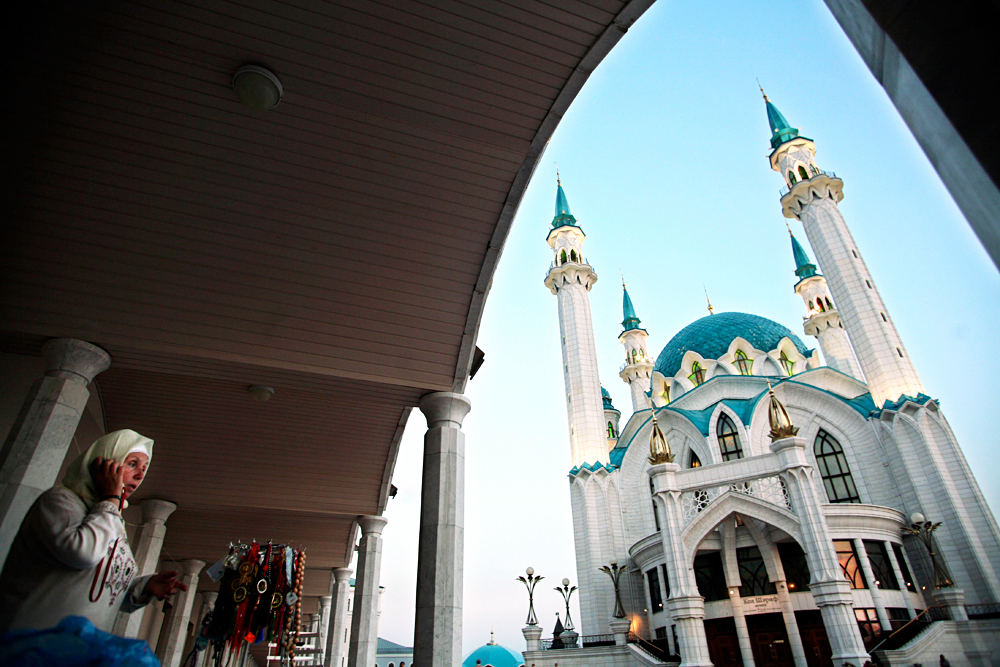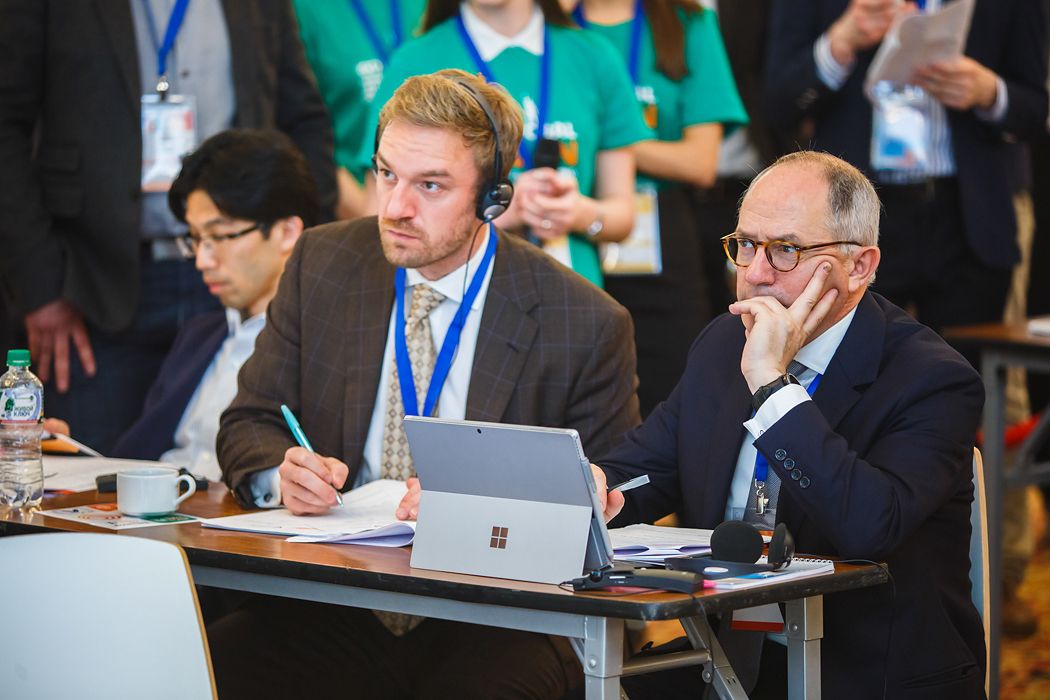
Tatarstan is the homeland of the Tatars, and 55% of the estimated 4 million population is Muslim.
APKazan, the capital of Tatarstan, is one of the most charming and picturesque cities in Russia, and it's easy to fall in love with. The city combines ancient architecture and brand new mosques, Christianity and Islam, innovation and tradition. Today, Kazan is quickly becoming one of Russia's strongest tech hubs, with many universities and science parks.
At the end of April, Kazan hosted the 11th Venture Fair, which is Russia's main venture industry event, bringing together about 700 delegates annually. The fair featured 55 startups selected from 378 companies. The 10 finalists received around $77,000 each, and an opportunity to participate in the international acceleration program in Silicon Valley and Ireland.
“There's no market in Russia for some technologies, but they are in demand abroad, and it was a right decision to create this platform here,” said Rustam Minnikhanov, Tatarstan's president, during the fair.
“We have to identify our development priorities,'' said Andrei Fursenko, assistant to Russia’s president, while speaking at the fair. ``It’s obvious that innovative agricultural projects are in demand."
Fursenko believes new technology could enhance the competitiveness of Russian food exports. According to the U.S. Department of Agriculture, Russian wheat exports are expected to set a new record this year, outpacing the other major competitors - Canada and the U.S. While Russia’s exports will rise to 23.5 million tons, U.S. exports are expected to be 21.8 million tons.
Many people who attended the fair, however, see Russia struggling to build an efficient innovation ecosystem, despite significant state funding. Fursenko admitted that the artificial stimulation of the tech sphere doesn’t work well enough. He said entrepreneurs should take more responsibility and rely more on themselves.
Russia might have already lost some markets, admitted Igor Agamirzyan, CEO of the Russian Venture Company. “It's a necessary part of the development of new technologies,'' Agamirzyan said. ''Ukrainian and Belarus IT developers have been more competitive on the global arena, and only the ruble's depreciation is changing the situation.”
At the same time, the technology market is developing at a pace that exceeds all expectations. For example, drones and unmanned vehicles saw explosive growth in recent years. Agamirzyan said he is concerned that the window of opportunity for Russian startups might be closing in certain areas.
 Marvin Liao, 500 Startups (L), Ethan Appleby, Vango (C), Sven Lingjaerde, Endeavour Vision SA (R) listening to the startup pitches. Source: Pulsar Venture Capital
Marvin Liao, 500 Startups (L), Ethan Appleby, Vango (C), Sven Lingjaerde, Endeavour Vision SA (R) listening to the startup pitches. Source: Pulsar Venture Capital
“At the Kazan fair you see a lot of projects from all over Russia, and that saves a lot of travel,'' Sven Lingjaerde, a co-founder of Endeavour Vision, a global venture capital firm, told RBTH. His company invested in one of the biggest online shoe retailers in Europe, and Lingered spotted an interesting startup called TryFit at the Kazan fair. TryFit developed a 3D foot scanning technology.
“The big problem when you are selling shoes online is their possible return, which can basically eat your margin,'' Mr. Lingjaerde said. ``When someone can identify the correct size, there is a 99% chance that the shoe will fit versus the 60-70% chance that we currently have.”
Lingjaerde admits that Russian entrepreneurs are particularly strong in electronics, big data algorithms, and software, but the commercial ability is often missing. Marvin Liao, a partner at 500 Startups, a seed venture capital firm and startup accelerator based in Silicon Valley, shares Sven’s opinion.
“Cyber security, biotech, life sciences, robotics, agriculture tech - these are all areas in Russia that are promising,'' Liao said. ``What we see in Russia is a lot of very talented scientists, but the problem is that we are looking for real products versus science projects."
Liao admits, however, that Tatarstan has established a fine foundation for tech startups. “The quality of startups represented at the fair has gone up in comparison to last year,'' Liao told RBTH. ``There is also a growing understanding of the importance of IT in Russia. I think this is due to the micro economical changes -- oil prices have gone down. Most resource-driven economies, including Australia and Canada, as well as some parts of Europe, are focusing on IT projects. This is the future."
All rights reserved by Rossiyskaya Gazeta.
Subscribe
to our newsletter!
Get the week's best stories straight to your inbox